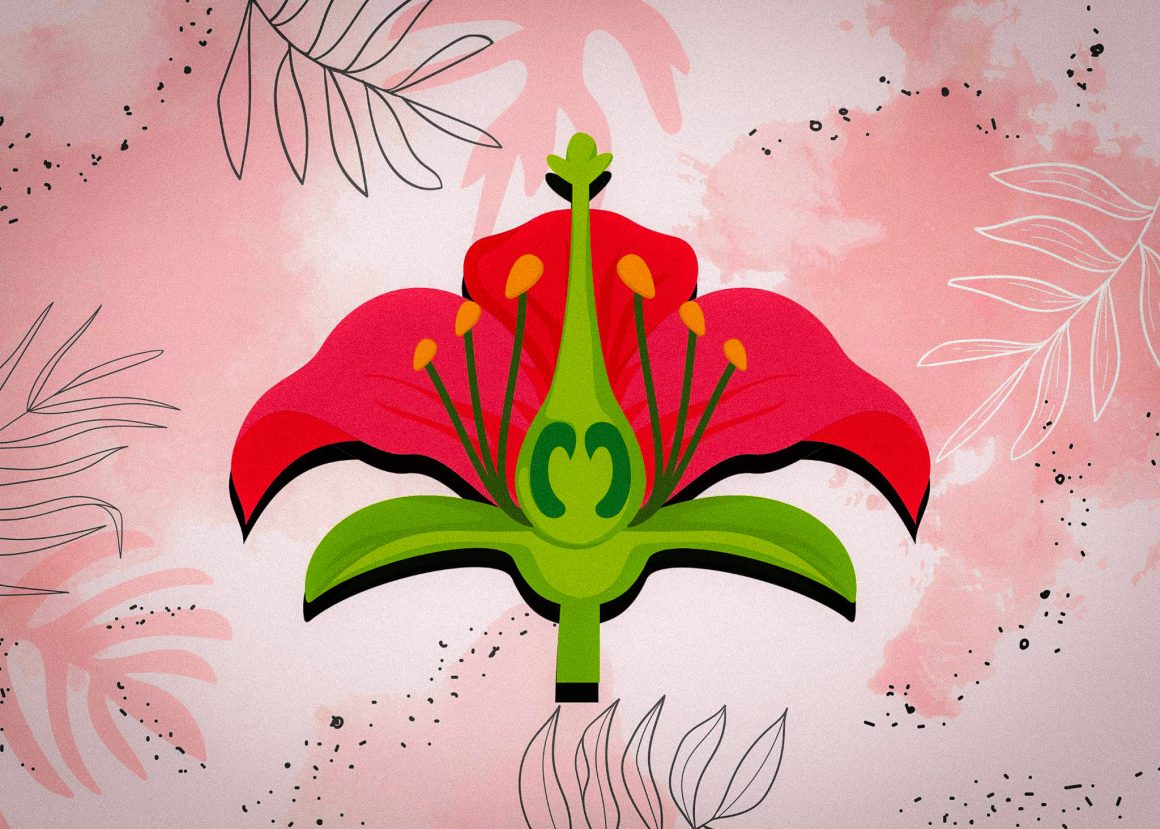
Breaking the virginity myth: How gender shapes the double standard
By Radhya Comar, October 8 2024—
Already-chewed gum, tape that has lost its stickiness and an unwrapped lollipop are not just random remnants of an office dustbin but a collection of metaphors. These metaphors compare women who have been sexually active before marriage to objects that have lost their purpose—essentially, trash. This striking comparison highlights the harsh reality of gender norms surrounding sexual activity. Such metaphors have often been used to discourage women from engaging in premarital sex to preserve their virginity.
Of course, not all figures of speech take such a reductive view of women’s bodies. In the opening scene of the acclaimed TV show Jane the Virgin, a young Jane holds a white rose. Her grandmother instructs her to crumple the flower and then try to restore it, using the wrinkled petals as a warning that she can “never go back” once her virginity is lost. Although roses generally symbolize beauty and femininity, this ritual still reduces women to mere objects and frames sex as inherently destructive.
This notion is one that many women carry into adulthood. Virginity is often seen as a valuable asset, while sex is perceived as something that diminishes that value. This belief can prevent women from exploring their sexuality and can limit access to comprehensive sexual education. Topics such as consent, STDs and contraception are less likely to be discussed when sex is regarded as inherently taboo. When a woman’s sexual status is considered integral to her worth, there may also be pressure to prove one’s virginity—an impossible task given that, biologically, virginity does not exist.
Many mistakenly believe that virginity is linked to the hymen, a thin tissue at the opening of the vagina. This misconception stems from the widespread idea that a woman’s first experience of penetration results in the hymen breaking and bleeding, serving as a sort of “virginity test.” However, for many, the hymen can break without any noticeable symptoms. A 2004 study of sexually active young women concluded that there were “no identifiable changes to the hymenal tissue” in 52 per cent of participants. Despite this, the myth persists, and women around the world may feel pressured to prove their so-called purity.
Although men face no equivalent virginity test, purity culture still influences their sexual identity. It is not only women who grow up with the idea that sex affects their value as human beings. When men internalize such beliefs, they may find themselves reducing both their own and others’ worth to sexual history. This attitude can affect even those who do not engage in sexual activities; numerous men admit to feeling shame and anxiety over not having had sex.
Even though virginity is now widely recognized as a social construct, the idea still impacts many individuals today. For women, purity culture often pressures them to preserve their virginity. For men, the dynamics of hookup culture can push them in the opposite direction. The push and pull between these two can have disastrous consequences. While a man may be ridiculed for inexperience, a woman may feel shunned for promiscuity. Both circumstances feed into purity culture, hindering individuals from seeking the support they require. In other words, it can prevent both men and women from asking questions about safe sex and consent. Moreover, the concept of virginity can force individuals to focus on the aftermath rather than the experience itself. These stigmas that can be carried over time, eventually turning into generational cycles which condemn sexuality as a whole.
Navigating the concept of virginity can be just as tricky as navigating relationships or sexuality itself. However, it reflects our relationship with ourselves—our thoughts, feelings, desires, and ultimately, our choices.
This article is a part of our Voices section and does not necessarily reflect the views of the Gauntlet editorial board.
